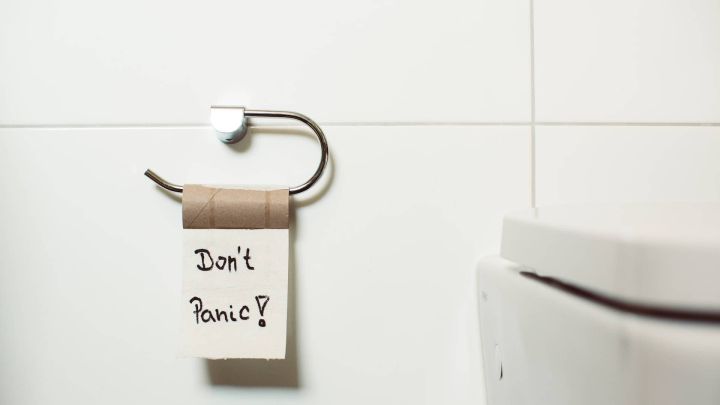Disease
What Will Happen If You Don't Treat Your Piles?
When it comes to hemorrhoids, many people probably think of the fierce, unspeakable, restless pain

Symptomatic haemorrhoids need to be treated promptly. For one thing, the pain in the jugular can seriously affect the quality of life; for another, although uncommon, persistent blood dripping after a bowel movement does have the potential to cause anaemia. In addition, untreated piles can lead to a range of complications, such as prolapse, perianal abscess, infection and even life-threatening infectious shock.

When it comes to haemorrhoids, many people probably think of the fierce, unspeakable, restless pain. Because of its awkward location and the fear of the pain it may cause during treatment, many people choose to suffer in silence, or sometimes worry: it hurts, bulges and bleeds, what will happen if it develops? Will it become cancerous?
If you have such questions too, take a look at the following.
Haemorrhoids are supposed to be a normal part of the body and everyone has them .The anal canal is located at the end of the digestive tract and is connected to the rectum on top and the anus on the bottom. At the junction of the rectum and the anal canal there is a lip-shaped bump called the 'anal pad'.
A healthy anal pad is a good size and flexible enough to assist with bowel movements and prevent incontinence. During defecation, the pad is pushed downwards by abdominal pressure, while blood filling decreases and the size of the pad is reduced, thus helping the faeces to pass. After defecation, the pad retracts back into the anal canal, increasing in size and blocking the anus, and also re-filling with blood to prevent the uncontrolled escape of faeces or gas (farts).
Once the anal cushion loses its elasticity and cannot retract smoothly into the anal canal after defecation, or even protrudes out of the anus, it becomes congested and enlarged, producing symptoms such as pain and bleeding, which is known as haemorrhoids.
But why does the elasticity of the anal pad deteriorate?
According to Alexis Grucel, Assistant Professor of Surgery at New York University Medical Center, increased pressure on the abdomen is a key factor in the development of haemorrhoids, including sedentary behaviour, constipation, prolonged bowel movements (playing on the phone while going to the toilet), abdominal obesity, pregnancy and more.

Grucel explains that excessive abdominal pressure can lead to poor elasticity of the anal cushion muscle fibres due to repeated stretching, which in turn leads to dilatation, congestion, hypertrophy and impaired retraction of the anal cushion blood vessels.
In addition, the development of haemorrhoids is also closely related to age. In fact, the smooth muscle of the anal cushion slowly deteriorates, breaks down and loosens with age, and is a key predisposing factor for haemorrhoids. According to the National Institute of Diabetes and Digestive and Kidney Diseases, one in two people over the age of 50 has haemorrhoids.
Will hemorrhoids that are painful, swollen and bleeding develop into cancer if left untreated?
No. Cancer is a new substance produced by the abnormal proliferation of cells in the body, whereas haemorrhoids are caused by the loss of elasticity of the normal anal cushion, which then moves down and retracts, and the two occur by completely different mechanisms.

So, do you still need to treat piles?
Symptomatic haemorrhoids need to be treated promptly. For one thing, the pain can have a serious impact on your quality of life; for another, although uncommon, there is a real risk of anaemia from persistent blood dripping after a bowel movement. In addition, untreated piles can lead to a range of complications, such as prolapse, perianal abscess, infection and even life-threatening infectious shock.
-
![]()
![]() DiseaseFeb 26, 2026
DiseaseFeb 26, 2026What is "Youth Dementia"
-
![]()
![]() DiseaseFeb 25, 2026
DiseaseFeb 25, 2026What Will Happen If You Don't Treat Your Piles?
-
![]()
![]() DiseaseFeb 24, 2026
DiseaseFeb 24, 2026Don't Wait Until You'Re 50 To Start Preventing Osteoporosis! Reminder: These 5 Calcium Supplements Are Reliable
-
![]()
![]() DiseaseFeb 23, 2026
DiseaseFeb 23, 2026Atherosclerosis Is a Natural Enemy Of The Middle-Aged And Elderly, How Can It Be Detected Early?
-
![]()
![]() DiseaseFeb 22, 2026
DiseaseFeb 22, 2026Can a Large Glass Of Coke a Day Lead To Osteoporosis?



